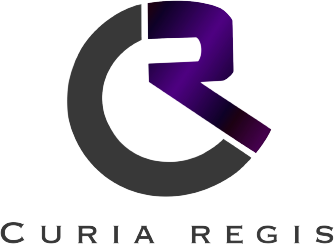The Financial Action Task Force (“FATF”) Recommendations serve as the global standard for combating money laundering and terrorist financing (“ML/TF”). These recommendations provide a comprehensive framework of measures that countries should implement to protect the international financial system. The recommendations cover a wide range of topics, including the legal and institutional framework, preventive measures for the financial sector and designated non-financial businesses and professions, transparency and beneficial ownership of legal persons and arrangements, responsibilities and powers of competent authorities and international cooperation.
The February 2025 update
The recommendations are regularly reviewed and updated to ensure they remain effective, relevant and current in addressing new and evolving threats. The recent revision has shifted its focus to the proportionality of Anti-Money Laundering and Countering the Financing of Terrorism (“AML/CFT”) measures, encouraging countries to allow for simplified measures in lower risk areas.
Some of these changes are detailed as follows:
Identification of lower risk areas
The FATF has indicated that countries should identify sectors that present a lower risk of ML/TF. This process often involves conducting national or sub-national risk assessments. The purpose of this exercise is to enable financial institutions and designated non-financial businesses and professions (“DNFBPs”) to implement AML/CFT measures that are proportionate to the actual risks involved.
There are circumstances when the exposure of a customer to the risk of ML/TF may be lower. In such circumstances and provided there has been an adequate analysis of the risk by the financial institution in relation to that country and the relevant factors that apply to it, the country should allow and encourage its financial institutions to apply simplified customer due diligence measures, such as:
- Delaying customer and beneficial owner identification until after the business relationship is established, potentially triggering verification if transactions exceed a certain threshold,
- Reducing the frequency of customer identification updates,
- Lessening the intensity of ongoing transaction monitoring, potentially based on a minimum transaction amount,
- Inferring the purpose and nature of the business relationship from transaction patterns or the established business relationship type, rather than collecting specific information.
Simplified customer due diligence (“CDD”)
In conjunction with identifying lower-risk areas, countries are recommended by the FATF to provide guidance and information to financial institutions and DNFBPs about the possible approaches for implementing simplified measures in situations where the risks are assessed to be lower.
The Principle of Proportionality
The FATF has revised its standards, specifically amending the language from ‘commensurate with’ to ‘proportionate to’. This change is integral to the risk-based approach that the FATF advocates for combating ML/TF.
In the context of the updated FATF Recommendations, the term ‘proportionate’ refers to a measure or action that is appropriately aligned with the level of identified risk. It underscores the importance of mitigating risks effectively by ensuring that the measures taken are in suitable correspondence with the assessed level of risk.
Navigate Tomorrow with Curia Regis
Navigating the evolving regulatory landscape in relation to AML/CFT standards requires a deep understanding of both global standards bridged with local requirements and implementation. At Curia Regis, we specialise in helping financial institutions interpret and apply global requirements effectively, while ensuring the viability of the business on the ground. We can assist your organisation in conducting thorough risk assessments, developing proportionate AML/CFT strategies and ensuring compliance with the latest regulatory updates. Contact us today to discuss how we can help your business adapt to these critical regulatory changes and ensure sustained compliance in an increasingly complex global financial environment.



